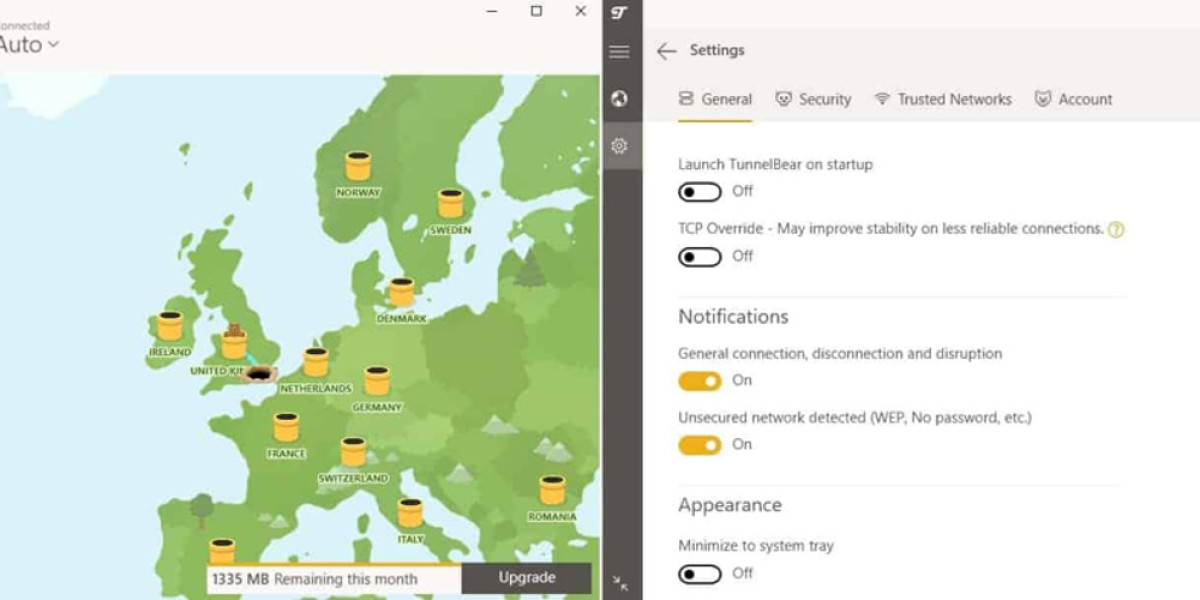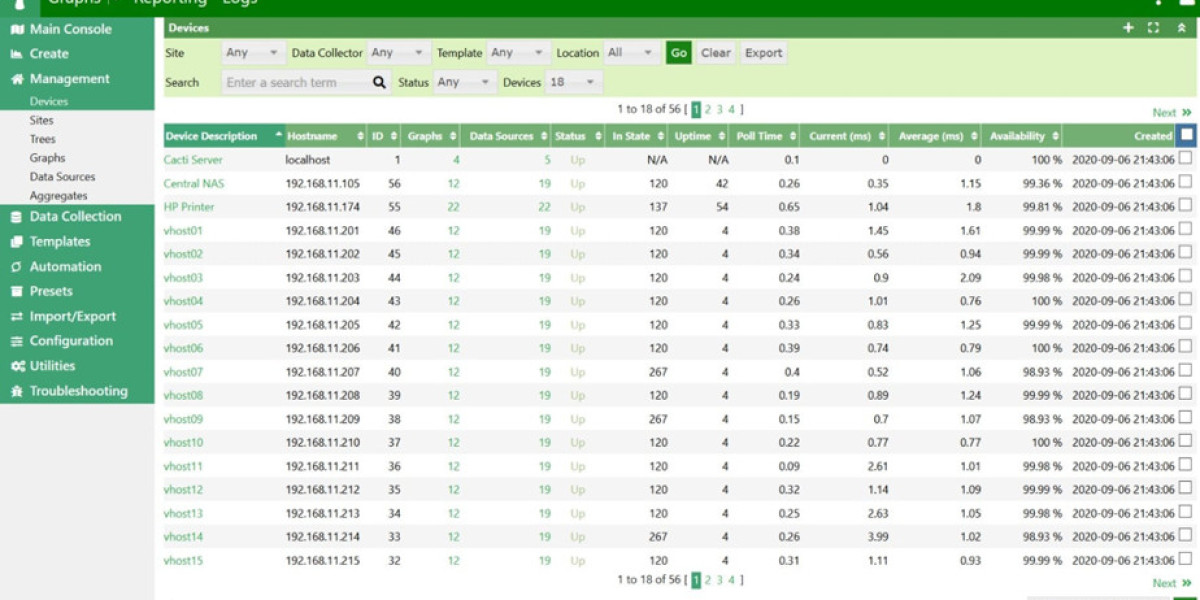VPN Comparison Overview
Navigating the VPN Landscape: ExpressVPN vs TunnelBear
Selecting a virtual private network service can feel overwhelming for newcomers. With countless options on the market, each boasting unique capabilities and technical jargon, making an informed decision requires careful consideration.
In this comprehensive comparison, we'll demystify the offerings of two popular VPN providers: ExpressVPN and TunnelBear. By breaking down their features in straightforward language, you'll gain clarity about what each service delivers for your investment.
These two providers represent different approaches to virtual privacy. While they share core functionality, their implementation, user experience, and additional tools vary significantly.
We've created a side-by-side analysis of these services, translating complex terminology into accessible explanations. Terms like "encryption protocols" and "server obfuscation" shouldn't require a computer science degree to understand.
Our goal is to empower you with practical knowledge about these privacy tools, helping you determine which solution aligns with your specific needs and budget constraints.
Let's examine what distinguishes these two privacy contenders in the competitive VPN marketplace.
TunnelBear's free tier presents an alluring entry point
but imposes strict limits like a mere 500MB monthly data cap
barely sufficient for brief browsing sessions
This free model necessitates compromises elsewhere in its service offering
ExpressVPN demands a premium upfront price tag
yet its annual commitment dips to just $6.67 monthly
positioning it competitively among mid-tier VPN providers
While TunnelBear's paid yearly plan undercuts this at $4.99 monthly
the gap narrows considerably versus monthly rates
Both safeguard your trial with 30-day refund policies
allowing risk-free testing before full commitment
Best ExpressVPN offer: 49% discount plus three extra months free annually
Top TunnelBear discount: 58% savings on their two-year subscription term
When comparing TunnelBear and ExpressVPN, both services maintain the industry-standard five simultaneous connections limit. However, ExpressVPN demonstrates superior versatility across platforms, offering tailored firmware for select routers and comprehensive application support for all major operating systems.
TunnelBear users face more limitations, requiring manual installation procedures for numerous devices and supporting only Ubuntu 16+ and Fedora Workstation 25+ Linux distributions.
Split tunneling functionality exists in both services, though with different implementation approaches. ExpressVPN provides this feature across Windows, macOS, and Android platforms, while TunnelBear restricts it exclusively to Android devices.
TunnelBear does offer unique advantages with its automatic WiFi protection feature that activates VPN connections on unsecured networks, plus Opera browser extension support. It's worth noting that TunnelBear's browser extensions only secure browser-based traffic rather than system-wide protection.
ExpressVPN takes a different approach with browser extensions that function as convenient control interfaces for the main application. This design allows for quick location switching while maintaining complete traffic encryption across all applications simultaneously.
When it comes to bypassing geo-restrictions on streaming platforms, our testing revealed significant differences between these two VPN services.
ExpressVPN demonstrated exceptional capability in accessing region-locked content across multiple platforms. During our evaluation, it successfully unblocked major streaming services that typically present challenges for VPN providers, including various Netflix libraries, BBC iPlayer, and Amazon Prime Video content.
In contrast, TunnelBear showed limited effectiveness for streaming purposes. While it managed to provide access to some smaller platforms like NBC and ITV Hub, it failed to bypass restrictions on most major streaming services. Notably, TunnelBear couldn't access any Netflix regional libraries - a significant drawback considering many budget-friendly VPN alternatives can at least unblock the US Netflix catalog.
For users in China facing the Great Firewall's restrictions, both services offer solutions, though with important considerations. Both ExpressVPN and TunnelBear function within China's heavily restricted internet environment. However, their websites are blocked in mainland China, making it essential to download and install these applications before traveling there.
ExpressVPN works in China without requiring any special configuration - simply connect as you normally would to access restricted content. TunnelBear users need to take an additional step by activating the GhostBear feature, which obscures VPN traffic to evade detection. This option can be enabled through the Security settings tab by clicking the gear icon.
Both TunnelBear and ExpressVPN deliver exceptional desktop applications with streamlined user experiences.
ExpressVPN incorporates a dedicated speed testing tool within its interface, facilitating immediate performance comparisons when toggling VPN connections.
Server locations can be changed effortlessly from the primary dashboard alongside a centrally positioned quick-connect feature.
Configuration settings are intelligently compartmentalized through a tab-based system on a distinct page, promoting intuitive navigation and accessibility.
TunnelBear's interface centers around an interactive map dominating the display.
Connection is straightforward: select a country directly on the map or choose from the dropdown menu above.
Access settings through a dedicated sidebar icon.
Configuration relies entirely on simple toggle switches.
This design allows easy reversal if you mistakenly disrupt functionality while adjusting preferences.
The mobile application of ExpressVPN mirrors its desktop counterpart in appearance, albeit with a reduced set of options. For example, you are limited to connecting via OpenVPN protocols and cannot toggle leak protection on or off. However, the essential functionalities are still available. You can enable the kill switch, set up automatic connections at startup, and utilize split-tunneling.
TunnelBear maintains a consistent visual design across both its desktop application and mobile platforms. This uniformity in appearance helps users transition seamlessly between devices.
However, the mobile version lacks certain functionality compared to its desktop counterpart. Notably absent are two key automatic features: the wifi protection tool and the startup connection option.
The settings menu appears robust at first glance with six distinct options, but upon closer inspection, only half of these settings actually affect VPN performance. The remaining three options merely alter the appearance of the application without impacting security or connectivity features.
When compared to ExpressVPN's feature parity across platforms, this reduction in mobile functionality represents a potential drawback for users who primarily connect through smartphones or tablets.
TunnelBear takes a uniquely playful approach to VPN terminology, adorning all features with bear-themed names. This whimsical branding, while charming, can create confusion about each function's actual purpose.
For clarity: when you activate "GhostBear," you're enabling traffic obfuscation that helps mask VPN usage. "VigilantBear" serves as the service's kill switch, automatically disconnecting your internet if the VPN connection drops. Meanwhile, "SplitBear" allows for split-tunneling functionality, letting you choose which applications use the VPN connection and which don't.
Unlike ExpressVPN's straightforward naming conventions, TunnelBear prioritizes brand consistency over immediate comprehension, requiring users to learn this bear-centric vocabulary.
Performance and Security Comparison
ExpressVPN delivers consistently faster speeds
thanks to substantially greater server resources
Its network boasts over 8 times the servers TunnelBear offers
This massive difference reduces congestion and latency
ExpressVPN operates servers across far more countries globally
TunnelBear's limited 21-country network restricts options
While impressive for a free tier, it's inadequate for premium users
TunnelBear's free plan creates a major performance bottleneck
Subscribers share crowded infrastructure with free users
ExpressVPN avoids this issue entirely
Overall, ExpressVPN holds a clear performance edge
Both VPNs provide server location details below
ExpressVPN and TunnelBear both implement formidable 256-bit AES encryption, rendering online activities virtually impenetrable to unauthorized access.
This encryption standard is currently considered unbreakable, providing a solid foundation for user privacy across both services.
Moving to connection protocols, TunnelBear stands out with its automated approach: it initiates multiple connections simultaneously and dynamically selects the fastest, leveraging IKEv2 and IPSEC alongside OpenVPN.
In contrast, ExpressVPN offers manual flexibility with additional protocols like PPTP and L2TP, catering to users who prioritize speed or specific configurations.
Both VPNs bolster security with proprietary DNS servers, ensuring no third-party can monitor your traffic, and they include reliable kill switches to halt all data flow during unexpected disconnections.
For stealth capabilities, TunnelBear uses obfsproxy to mask VPN usage as ordinary HTTP traffic, while ExpressVPN relies on cipher block chaining to complicate decryption efforts for potential interceptors.
When selecting a VPN service, privacy considerations extend beyond features to include jurisdictional implications. ExpressVPN operates from the British Virgin Islands, a location with favorable privacy laws and no mandatory data retention requirements.
TunnelBear, however, is headquartered in Canada—a Five Eyes alliance member. This alliance, comprising the United States, United Kingdom, Australia, New Zealand, and Canada, allows intelligence sharing between member nations.
Despite this jurisdictional difference, both providers implement privacy-focused logging policies. ExpressVPN maintains minimal connection records, noting only server choices and connection timestamps. TunnelBear similarly limits its data collection to technical information like operating system details and monthly login status.
Importantly, neither service logs browsing activities or collects personally identifiable information, making their minimal connection logs relatively innocuous from a privacy perspective.
For users seeking enhanced anonymity, both services accept Bitcoin payments. TunnelBear uniquely offers the quirky option of honey jar payments—though this novel approach comes with significant practical limitations including higher effective costs due to shipping expenses.
In both ExpressVPN and TunnelBear's architecture, users connecting to a server share IP addresses collectively. This shared allocation system significantly enhances privacy protection by making individual user activity virtually untraceable.
While neither VPN offers specialized anti-DDoS servers or dedicated IP options, their infrastructure generally handles moderate DDoS attacks effectively. ExpressVPN likely provides superior protection in this regard due to its substantially larger server network compared to TunnelBear.
A notable difference between these services involves NAT firewall implementation. ExpressVPN incorporates this security feature, whereas TunnelBear does not. The significance lies in how encrypted traffic is managed: when your data is encrypted, your router cannot identify which device should receive specific packets. The NAT firewall in ExpressVPN efficiently routes this encrypted information to appropriate destinations while simultaneously blocking potentially harmful or unauthorized data packets.
TunnelBear offers reliable customer support. If you encounter any issues, you can reach out by submitting a ticket or sending an email, and typically receive a response within a few hours. They also provide a searchable knowledge base where you can find solutions to common problems.
In contrast, ExpressVPN showcases the advantages of paid services over free ones. In addition to email support, users can connect with support agents through 24/7 live chat. Our experience shows that the staff is highly responsive, often replying in just a few seconds. The ExpressVPN knowledge base is comprehensive, and for those who prefer visual learning, there are video tutorials available on their YouTube channel.
To compare the responsiveness of both services, we sent each provider three questions via email. This helps us evaluate their response times and ensure that ExpressVPN maintains good communication with its users even if live chat is unavailable. Below, you'll find the questions we asked and the corresponding response times:
ExpressVPN and TunnelBear provide automated responses to frequently asked questions, which is standard practice in customer service.
When inquiring about platform compatibility, TunnelBear was refreshingly transparent about not supporting Linux systems.
However, their communication style, heavily laden with bear-themed puns, can detract from the professional nature of technical support interactions. When it comes to choosing between ExpressVPN and TunnelBear, several key factors set them apart. While TunnelBear offers a generous free tier that surpasses many of its competitors, it falls short in some crucial areas. By not fully committing to being either a free or paid service, TunnelBear ends up compromising the experience for its paying users. This results in slower speeds and higher server loads, which can be frustrating.
Moreover, TunnelBear lacks live chat support, a feature that is almost standard for major paid VPNs. This absence can be a significant drawback, especially when users need immediate assistance.
In contrast, ExpressVPN stands out with its extensive network, covering more countries than any of its rivals, including TunnelBear. It also excels in unblocking major streaming platforms, a task that TunnelBear often struggles with.
Both services are robust in terms of security, but ExpressVPN takes it a step further by being based outside of Five Eyes jurisdiction. This strategic location ensures that no other country can gather and share the minimal user data that ExpressVPN records.
For these reasons, ExpressVPN is generally the better choice for most users.
What is a Netflix VPN and How to Get One
A Netflix VPN is a tool that enables users to bypass geographical restrictions and access a wider range of content on the streaming platform by routing their internet connection through servers in various countries. This means you can watch shows and movies that are not available in your region, simply by connecting to a server in a country where the content is accessible.
Why Choose SafeShell as Your Netflix VPN?
If people want to access region-restricted content by Netflix VPN, they may want to consider the SafeShell VPN. One of the key benefits of using SafeShell is its high-speed servers, which are specifically optimized for seamless Netflix streaming. This ensures that you can enjoy your favorite shows and movies without any interruptions, providing a buffer-free and high-definition viewing experience.
SafeShell VPN also stands out with its ability to connect multiple devices at once, supporting up to five devices simultaneously on a wide array of operating systems, including Windows, macOS, iOS, Android, Apple TV, Android TV, and Apple Vision Pro. Additionally, it offers an exclusive App Mode feature, allowing you to unlock and enjoy content from multiple regions at the same time. With lightning-fast speeds, no bandwidth limitations, and top-level security through its proprietary "ShellGuard" protocol, SafeShell ensures both a smooth and secure streaming experience. Furthermore, the flexible free trial plan allows users to explore these robust features without any commitment.
A Step-by-Step Guide to Watch Netflix with SafeShell VPN
To begin accessing international Netflix libraries with SafeShell VPN, first install the application on your device. Download the SafeShell VPN client directly from their official website for your operating system, whether it's Windows, macOS, iOS, or Android. After installation is complete, launch the SafeShell VPN app and log in using the credentials you created during your subscription process. You'll be presented with the main interface of the SafeShell Netflix VPN service.
Next, navigate within the app to the server selection screen. For optimal Netflix streaming, specifically choose the 'APP' mode from the available connection options to prioritize speed and reliability. Then, carefully browse the extensive list of global servers and select one located in the country whose Netflix catalog you wish to unlock, such as the United States, Japan, or the United Kingdom. Once you've made your selection, simply click the 'Connect' button to establish a secure VPN tunnel to that specific region using SafeShell Netflix VPN.
Finally, ensure the SafeShell VPN connection is active and successfully routed through your chosen location. Then, open your Netflix application or visit the Netflix website in your browser. Log into your Netflix account as usual – you should now see the content library corresponding to the VPN server region you selected. If you encounter regional restrictions, disconnect from the VPN, clear your browser cache, reconnect to the desired SafeShell Netflix VPN server, and refresh Netflix. Enjoy seamless streaming of geo-blocked movies and shows.








